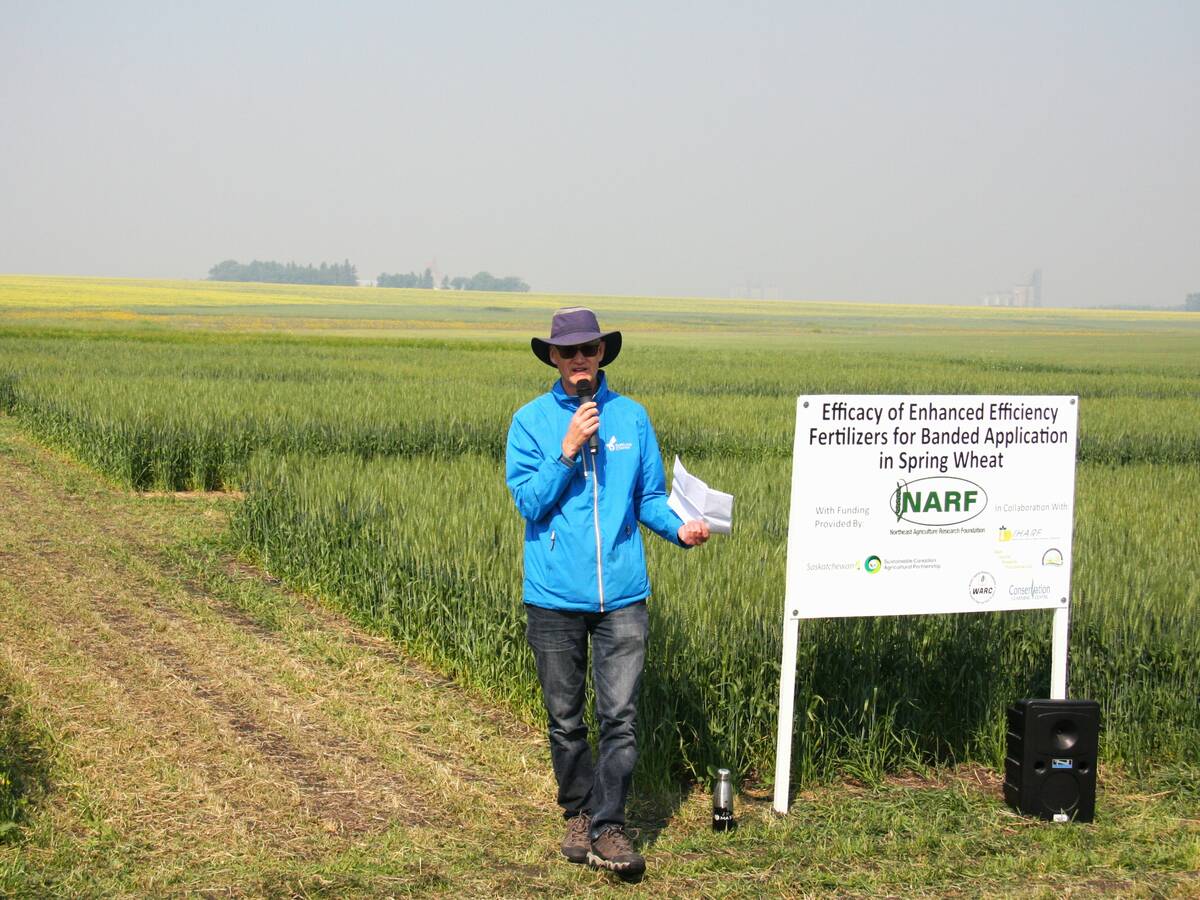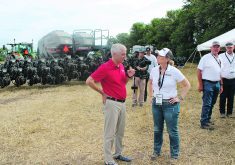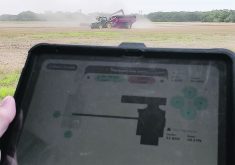System avoids base station unlock fees because it was designed to work with any base station that surveyors use
Farmers that need RTK precision have another option with the launch of the Agra GPS CRG receiver.
Andrew Clayton of Agra GPS said the new receiver is the first receiver outside of John Deere’s products that is compatible with Deere’s GPS system.
“It supports all four satellite systems and comes with RTK, without any unlocks. It also includes a JD-Bridge which allows the CRG to enable John Deere displays to autosteer machines including Claas, Agco and CNH,” Clayton said.
Agra GPS broke into the agriculture market when John Deere stopped supporting StarFire ITC a few years ago, which left hundreds of thousands of farmers around the world with receivers that no longer worked, Clayton said.
Read Also

Fertilizer method’s link to emissions studied
A researcher says others studying greenhouse gas emissions aren’t considering how the loss of nitrogen into the atmosphere correlates with fertilizer application or if there is an impact to yield.
Agra GPS created a box that users connect to their receiver to make the ITC work again.
The company still sells this product, but Clayton said its primary use was as a temporary fix for growers who were happy to use the WAAS connection.
Agra GPS provides much higher accuracy.
“It plugs right into the Deere display exactly how that SF6000 or SF3000 would plug in, and it is fully unlocked with RTK. So right out of the box, there’s no unlock fees, no subscription fees, and no licensing fees,” Clayton said.
Users will still need a correction signal for RTK guidance.
However, Clayton said Agra GPS works on industry standards Radio Technical Commission for Maritime Services (RTCM) to provide growers with more options.
“Whereas with John Deere you would need to get a John Deere base station and you would need to unlock that John Deere base station with RTK and pay all of these unlock fees, we run on industry standards, so any base station surveyors use would work with our device,” Clayton said.
He added that some states provided continuously operating reference station (CORS) networks to receive the RTCM correction, which can be used by any receiver that outputs standard RTCM corrections.


















